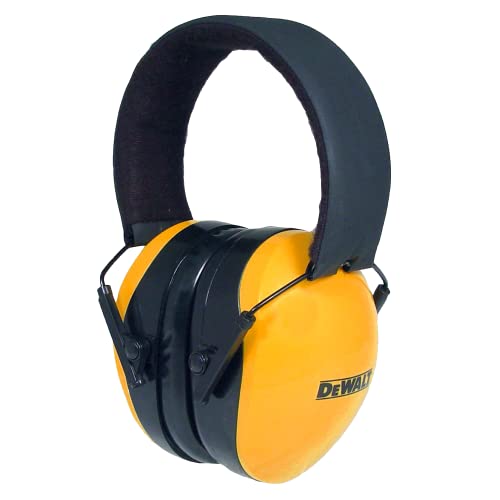Acetylene has it's on explosion proof category. Class 1 Div I Group A
Very low comparatively ignition temperature I think.
Very low comparatively ignition temperature I think.

I know what the cost is, I've used them weekly and sometimes daily for the last 20+ years in an industrial construction setting. O/A ratio is less than 2:1. Oxy/propane ratio is better than 4:1. So off the bat double your oxy purchase when cutting material. Propane Tips are costlier than Acetylene tips which washes any savings out of the "propane tips last longer than acetylene" argument. If you know how to use a torch a tip lasts a long time regardless of gas used. It is foolish to use propane extensively in areas with limited ventilation because it produces many x CO compared to acetylene. And again, the lleaks.Acetylene being lighter floats away where propane hangs low and often goes undetected by the crew who has been sniffing it all day. You won't find propane in any reputable ship yard. I have heard of it in a fly by night operation in Erie. Several guys got carted out and put on oxygen.I completely disagree and I am betting most others will. Go lay a acetylene tank down and then shock it. Go put a acetylene tank in a manifold system running 10 torches and then shock it....
Propane is a safer but yes a cooler gas. Yes it does utilize more O2 but the cost savings in cutting/heating far outweighs it. Please call your local store and get a refill/exchange price of their largest acetylene tank and let us know. Also check the same on a 02. You see what it is and lets discuss it
I got elected to weld on a Chloropicrin vessel one time. 6 hours straight in a level b acid suit and breathing air in near 100 degeee temps. Took my mask off one time to wipe the sweat out of my eyes and quickly understood why I had to wear the equipment. Bad ju ju.Try working with phosgene, Cl(C=O)Cl. I did for many years. Not dead.
Oh yeah......Chloropicrin is some bad chit!!!! I used to work in a control lab at a chemical plant......chloropicrin was part of the production. We took two pint samles daily and tested for purity. At the end of the month we had 60 pint bottles to empty into a large vessel under an exhaust hood.......being young and the junior technician that job fell to me. Boring job but I had been cautioned to not spill even a drop so I was very carful with my poor. However being young and easily bored my mind would wonder off a bit.....though I was always attentive to my poor I failed once and droppped a bottle cap which landed on edge and promptly rolled out from under the hood and off the bench and onto the floor.I got elected to weld on a Chloropicrin vessel one time. 6 hours straight in a level b acid suit and breathing air in near 100 degeee temps. Took my mask off one time to wipe the sweat out of my eyes and quickly understood why I had to wear the equipment. Bad ju ju.



Funny, cut for years with Propane Tips and never had them plug up or had to rod them out. Try running a rosebud on Acetylene for extended heat time while not violating the 1/7th rule. Ran the same Propane Tips for years without problems, easy to take apart and brush off, on the other hand the Acetylene tip required cleaning all the time and splash back required cleaning tool when used will change properties for the tip. You sizes tips as to the thickness of the expected cut.Propane Tips are costlier than Acetylene tips which washes any savings out of the "propane tips
It's not difficult. Although pre heating is probably the one area where propane would make more sense than acetylene due to the oxygen/gas ratio used when preheating.Try running a rosebud on Acetylene for extended heat time while not violating the 1/7th rule. .
Was the chloropicrin labeled from a company called Ashta Chemicals by chance? I would imagine there are very few manufacturers of that black magic. We would get drug in there for ASME work every once in a while.... Nothing good about that place. Nobody ever volunteered to go work there. It was usually a low man job and a lead if the job was big enough to require a crew. They also made chlorine via an ancient mercury cell technology. The plant was built in the 1950's using WW2 era tech. This is no exaggeration, the mercury leaks were so many they had leak kits set up where they would wheel this bakers scaffold looking contraption with a giant super sack looking funnel that drained into a container about the size of a 5 gallon bucket. The container was on a pallet so they could grab it with a tow motor, several hundred pounds by the time it was changed out for a new one. The guys that worked that plant were blood tested on a regular basis. No thanks.Oh yeah......Chloropicrin is some bad ****!!!! I used to work in a control lab at a chemical plant......chloropicrin was part of the production. We took two pint samles daily and tested for purity. At the end of the month we had 60 pint bottles to empty into a large vessel under an exhaust hood.......being young and the junior technician that job fell to me. Boring job but I had been cautioned to not spill even a drop so I was very carful with my poor. However being young and easily bored my mind would wonder off a bit.....though I was always attentive to my poor I failed once and droppped a bottle cap which landed on edge and promptly rolled out from under the hood and off the bench and onto the floor.
.....we had to evac the lab and go back in suited up to open the windows and clean up the two drops on the floor and the cap before we could return to work.....there were some raised eyebrows but no grief .....I guess the other guys knew it was "lesson learned"
Was the chloropicrin labeled from a company called Ashta Chemicals by chance? I would imagine there are very few manufacturers of that black magic. We would get drug in there for ASME work every once in a while.... Nothing good about that place. Nobody ever volunteered to go work there. It was usually a low man job and a lead if the job was big enough to require a crew. They also made chlorine via an ancient mercury cell technology. The plant was built in the 1950's using WW2 era tech. This is no exaggeration, the mercury leaks were so many they had leak kits set up where they would wheel this bakers scaffold looking contraption with a giant super sack looking funnel that drained into a container about the size of a 5 gallon bucket. The container was on a pallet so they could grab it with a tow motor, several hundred pounds by the time it was changed out for a new one. The guys that worked that plant were blood tested on a regular basis. No thanks.
Sounds exactly like Ashtas process. Had to weld under that cell floor a handful of times. Had to run ac rod. You could literally stick a 1-1/4 wrench to a column and let go of it
A few years back they were finally forced to upgrade their process or the epa was going to shut them down. I hear it is a much cleaner process.... I Still have no desire to go back there
So why did You belittle me on use of phosgene, when You know nothing?Of course you were.
If you were not imagining me to be a piss ant, you would have recognized my comment as an acknowledgment that you were using the right equipment for a dangerous chemical. Yes, I know what all those things are. Just consider me an unqualified applicant for admission to an MS program, and you'll have me at the right educational level.
Now kindly show a little more respect, as I have offered no disrespect to you.
BTW: you never answered my question. I was really interested in the reason you chose that format.

I am completely unaware of any belittlement. Nothing I said was intended to insult; in fact, I was acknowledging your strong history and expertise on the topic. "Got a hood. Will do chemistry"
How is that offensive?
If you look for an insult in everything you read, you will surely find it, and be less happy for your efforts. If I ever choose to insult you, there will be no doubt as to my intentions.
You'd be dead.
Are you trying to harvest some especially spicy insults?Yeah, I don't like either one of you.
Try running a rosebud on Acetylene for extended heat time while not violating the 1/7th rule.

so yer admitting to not working with aluminum much, while arguing with a guy that has?Nope, but I don't often work with aluminum, either. I'll confess, that looks pretty easy in the video.
I found it to be rather challenging with my MIG. It was always a juggling act to balance bubbling wire aluminum wire onto the top or pouring it into the aluminum and creating giant bubbles beneath where I was welding. Or just having altogether too much heat and having the whole thing go blob onto the ground. Getting aluminum repair areas clean enough for the MIG didn't seem to work for me.
I also noticed that "Aluminator" is an MG welding product. My favorite rod of all is MG 600. That stuff is magical, and can weld almost anything to anything else, aluminum, zinc, copper, and brass excepted. It's unbelievably strong and easy to weld with, too.
So I'm inclined to think their aluminum rods are probably pretty good too. I'll bet they are not cheap, either.